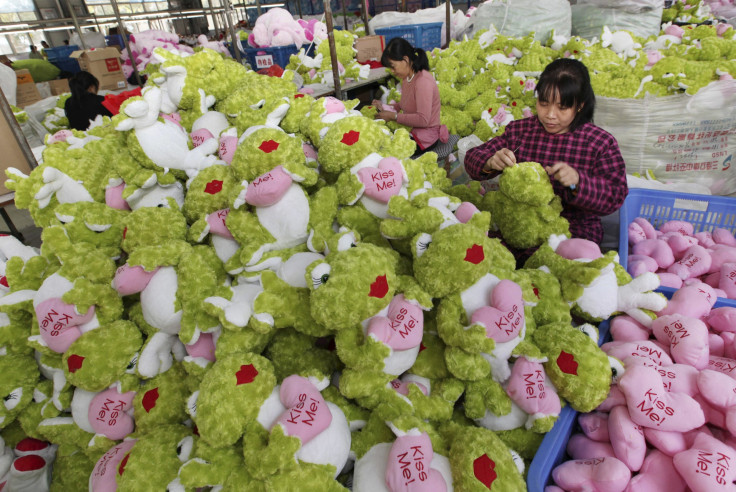China's Economic Growth To Slow Over Next Two Decades: Conference Board

China’s economic growth will slow drastically over the next decade, the Conference Board said Monday. The U.S. nonprofit said growth in the world’s second-largest economy will drop nearly in half by 2025 as productivity falls and Chinese leaders fail to pass needed reforms.
The Chinese government has targeted 7.5 percent growth this year -- a rate economists say Chinese leaders will struggle to meet -- after the economy grew at 7.7 percent last year. The Conference Board forecasts that China’s annual growth will slow to an average 5.5 percent between 2015 and 2019 and then an average 3.9 percent between 2020 and 2025.
Such sluggish growth would weigh on the global economy, which is already fragile as it recovers from the recession of 2008-2009.
Foreign companies should realize that China is in “a long, slow fall in economic growth,” the report said. “The competitive game has changed from one of investment-driven expansion to one of fighting for market share.”
Nevertheless, foreign and multinational companies conducting business in China would benefit from having a larger pool of Chinese workers to hire from and firms to acquire as well as receive “more hospitable” treatment from the Chinese government, the report said.
For the three decades through 2011, China grew at an average annual rate of 10.2 percent, the most rapid growth of any nation since World War II. In 2007, China’s growth peaked at 14 percent, with strong growth sustained by exports and government spending on factories and apartment buildings. Since 2012, China’s economic growth rate has fallen. Now China’s leaders want Chinese consumers to drive more growth.
Senior Chinese Communist Party officials were meeting Monday in Beijing to discuss economic policy and the projected slowdown. China will report third-quarter economic growth data on Tuesday.
The report’s forecast echoes findings of other prominent economists. The International Monetary Fund said in July that China should lower growth targets for 2015 to no higher than 6.5 percent to 7 percent.
Also, former U.S. Treasury Secretary Larry Summers and Harvard University professor Lant Pritchett said last week in a National Bureau of Economic Research paper that they expect China will grow by 3.9 percent a year for the next two decades. In addition, they also said that nearly every country that has experienced a major democratic transition after a period of above-average growth, as China has, experienced a sharp deceleration in growth in the decade following the transition.
“In developing countries, episodes of rapid growth are frequently punctuated by discontinuous dropoffs in growth,” Summers and Pritchett said in the report. “Such discontinuities account for a large fraction of the variation in growth rates. We suggest that salient characteristics of China -- high levels of state control and corruption along with high measures of authoritarian rule -- make a discontinuous decline in growth even more likely than general experience would suggest.”
© Copyright IBTimes 2024. All rights reserved.












